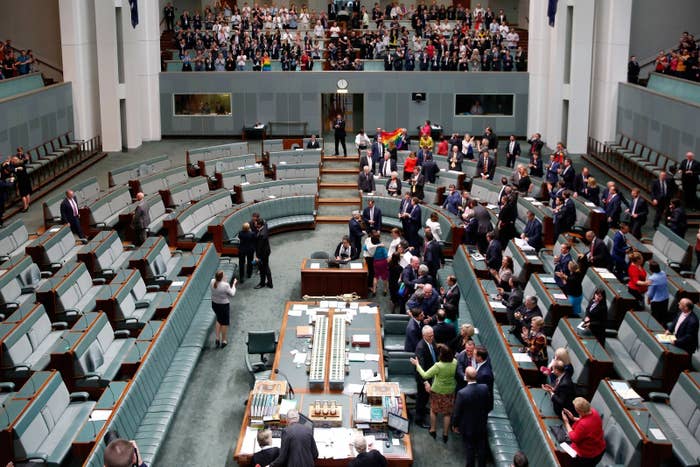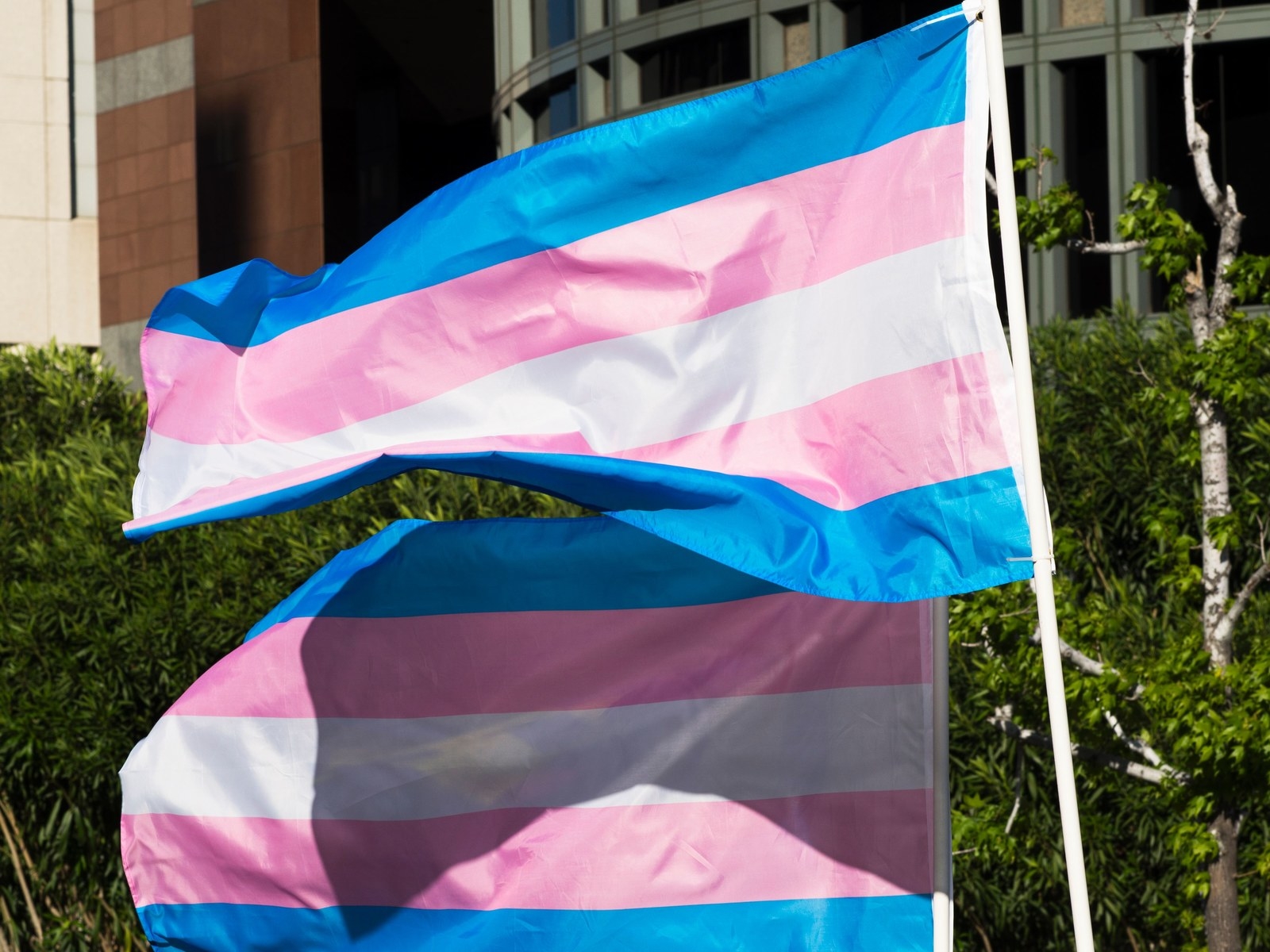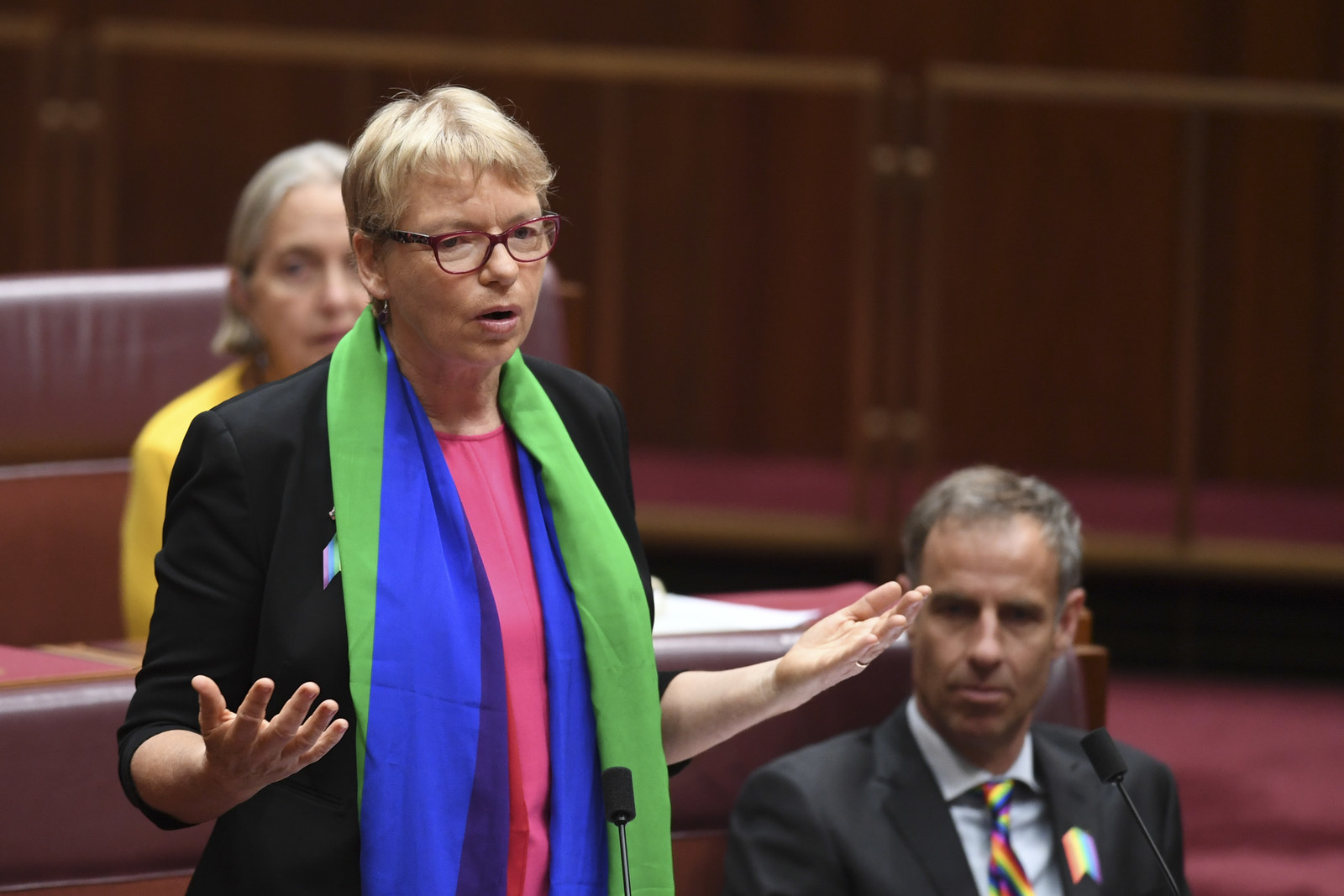In January 2006, a transgender woman in New South Wales, known as G, applied to change the sex on her birth certificate to female.
She had been on hormone therapy for six years, changed her name on all identity documents, and been issued a passport with her sex marked female. In 2005 she had also gotten married, to a woman.
Under NSW law, transgender people must meet four criteria to change their legal sex: be over 18; have their birth registered in the state; have undergone gender affirmation surgery; and be unmarried.
G met the first three, but not the last, and her application was rejected by the NSW Births, Deaths and Marriages Registry. Further attempts in 2008 and 2010 yielded the same result.
The reason for this unusual law was ostensibly to prevent same-sex marriages. If G changed her birth certificate, her marriage would be a legal one between two women — something that was not allowed under Australian federal law prior to December 9, 2017.
But now that same-sex marriage is legal, Australian states and territories must, within twelve months, abolish the "forced divorce" laws barring married transgender people like G from changing their legal sex.

These laws, which exist in all jurisdictions except South Australia and the Australian Capital Territory, have long been criticised by transgender advocates as cruel and a source of great stress on marriages and families.
In mid-2017, the laws came under fire from the United Nations Human Rights Committee, after G submitted a complaint about her situation.
The committee found in G's favour, rejecting the argument that the divorce requirement was necessary to uphold Australia's ban on same-sex marriage, and saying the laws violated international human rights.
Now, advocates from Transgender Health Australia have written to state and territory leaders, attorneys-general and opposition leaders, urging them to act quickly to repeal forced divorce laws in the wake of same-sex marriage being legalised.
Zoey Campbell, one of the signatories to the letter, told BuzzFeed News: "When I transitioned, I was initially wanting to change my birth certificate to recognise my gender; I was happily married at that time.
"I didn’t want to be faced with the decision to choose between being married or choose something that was equally important to me in a sense — being recognised as my true self."

The same-sex marriage legislation that passed the parliament last year repealed a subsection of the Sex Discrimination Act (SDA) that expressly allowed states to have laws banning married transgender people from changing their birth certificate.
But this part of the new marriage law does not come into force until December 9, 2018, giving state and territory governments a year to write and pass legislation. After this date, it will become unlawful to refuse to record a change of sex based on marital status, and transgender people will be able to bring complaints about such laws against any state or territory that fails to repeal them.
Campbell said the letter was to raise awareness of the issue. She fears the changes may be left by the wayside in some jurisdictions.
"It might take months, it might be left to the last minute," she said. "State governments with a particularly difficult parliament, it might fall off. What’s the scenario then? Trans people will be forced to make unnecessary anti-discrimination complaints for no good reason."
"This is an issue that is a hangover from the old days before marriage equality. The transgender community is facing the last gasp of the old discrimination."
The most high profile couple affected by the laws is federal Greens senator Janet Rice and her wife Penny Whetton, who is transgender. Whetton has been unable to change the sex on her birth certificate under Victorian law unless she and Rice divorce.
Rice told BuzzFeed News that trans people and their partners have "been through enough".
"These laws should be repealed as soon as parliaments resume after the summer break, rather than waiting to the last minute," she said. "I’m looking forward to Penny being able to affirm her gender and for us to stay married."

Rice also called for states and territories to repeal laws requiring transgender people to have gender affirmation surgery before they can change their birth certificate.
"The best outcome is for this to occur at the same time as the trans forced divorce change. However, we recognise that this change may take longer to negotiate through parliaments," Rice said.
Campbell agreed, saying there were several reasons transgender people may not want, or be able, to undergo surgery.
"Some people can’t afford surgery, but they’re still a woman or a man," Campbell said. "Some people don’t have the health to permit what can be serious surgical intervention. It’s not fair or appropriate to demand that."
Both the divorce and surgery requirements have been abolished in the ACT (2008) and South Australia (2016).
On the same day South Australia got rid of the laws, the Victorian upper house voted to keep them. A slim majority, consisting of the Liberal opposition and cross benchers, defeated Labor government legislation that would have ended both the divorce and surgery requirements.
The Victorian government is currently looking into how to implement the changes required by the new Marriage Act. Attorney-general Martin Pakula told BuzzFeed News he hoped the efforts would not be stymied a second time.
"Given [opposition leader] Matthew Guy’s apparent support for marriage equality, I hope that this time he will be able to convince his colleagues to support a change which is long overdue," Pakula said.
New South Wales attorney-general Mark Speakman told BuzzFeed News the government is reviewing all NSW laws to see what changes are required due to the legislation of same-sex marriage, and will introduce amendments "as soon as practicable".
In Tasmania, changes to the relevant act are in the preliminary planning stage, according to a department of justice spokesperson.
A spokesperson for the office of Queensland attorney-general Yvette D'Ath said the government was aware of the issue and D'Ath would take steps to address it in early 2018.
A spokesperson for the office of Northern Territory attorney-general Natasha Fyles said Fyles was considering amendments to address the changes to the Marriage Act, as well as other issues faced by transgender Territorians.
The NT government is also currently reviewing anti-discrimination law to ensure it outlaws discrimination and vilification on the basis of sexuality, gender identity and intersex status.
The West Australian government were unable to provide a comment by deadline.
